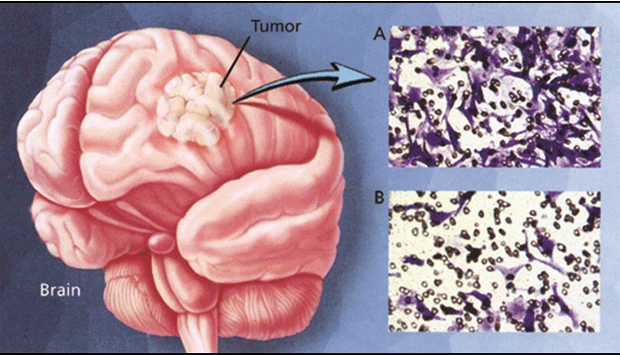Scorpion toxin helps to distinct tumor and brain cells
Seattle Children’s Hospital pediatric neuro-oncologist Jim Olson found an amazing way to distinguish tumor cells from human brain cells to avoid future possible mistakes during brain surgery.
Jim made that amazing discovery finding solution of a problem during brain surgery. |
 |
Jim was reviewing with his colleagues the case of a 17-year-old girl several years ago who had just undergone brain surgery to remove a tumor. An MRI scan revealed a thumb-size piece of tumor left behind. In the operating room, the tumor tissue had looked just like healthy brain tissue. Olson started searching for a way to highlight cancer cells in the operating room. He came across a report of a scorpion toxin that binds to brain tumors but not healthy cells. By linking a synthetic version of this protein to a molecule that glows in near-infrared light, the researchers think they may have found what they call “tumor paint.” |
 |
In their very first test, the pair injected the compound into the tail vein of a mouse whose body harbored a transplanted human tumor. “Within 15 to 20 minutes, the tumor started to glow, bright and distinct from the rest of the mouse,” says Olson. A Seattle company called Blaze Bioscience has licensed the technology from the Fred Hutchinson Cancer Center. Olson says human trials will begin late in 2013. |
Antibiotics useless for treating persistent coughs
Most of doctor across world are used to give antibiotics to their patients having persistent coughs but researchers say that the antibiotics are ineffective in the coughs caused by mild chest infections.
The new study found that the severity and duration of symptoms in patients treated with antibiotics were no different to those given a placebo. |
 |
But experts caution that if pneumonia is suspected, antibiotics should still be used due to the disease’s severity. “Using the antibiotic amoxicillin to treat respiratory infections in patients not suspected of having pneumonia is not likely to help and could be harmful,” the BBC quoted Paul Little, lead researcher from the University of Southampton, as saying. “Overuse of antibiotics, dominated by primary care prescribing, particularly when they are ineffective, can lead to the development of resistance and have side effects like diarrhoea, rash and vomiting. |
 |
“Our results show that people get better on their own. But given that a small number of patients will benefit from antibiotics the challenge remains to identify these individuals,” Little said.
In the study, the researchers randomly divided patients into two groups – one received the antibiotic and the other was given a placebo, an inert treatment in the form of a sugar pill, three times a day for seven days. The study found little difference in the severity and duration of symptoms reported between groups. This was also true for older patients – those aged 60 years or over – who made up nearly a third of the study. |
 |
And those taking antibiotics were reported to have more side effects including nausea, rash and diarrhoea than those given the placebo.
The study has been published in the Lancet journal. |



No comments:
Post a Comment